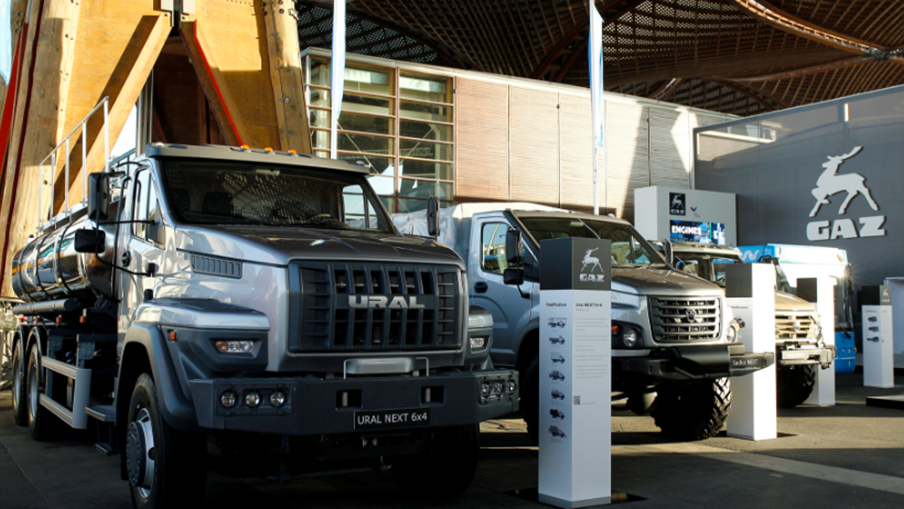The billionaire majority shareholder of GAZ Group, who successfully got three of his other companies off the U.S. sanctions list, is seeking the same treatment for the struggling commercial vehicle giant.
Oleg Deripaska reduced his stake and control of EN+ Group PLC, the holding company for aluminum giant United Co. Rusal PLC and JSC EuroSibEnergo, as part of an agreement with the U.S. Treasury Department for the three companies to be removed from the sanctions list.
Deripaska said in recent interviews that GAZ Group has “no chance of survival” if it isn’t delisted. He told the Financial Times that GAZ Group, which is deeply indebted to Russian state-owned banks, could be nationalized to avoid the potential loss of 40,000 jobs if the company folds. Deripaska also told the FT that he has hired a former U.S. ambassador to help with the delisting effort.
GAZ Group lost some of its Western clients and potential investments in the wake of the sanctions, which were imposed on the company in April 2018 due to Deripaska’s ownership. Deripaska has sued the U.S. for his own removal from the U.S. sanctions list, arguing his designation is based on “no facts, no grounds, just filthy lies.”
The exact toll of the U.S. sanctions on GAZ Group is unclear, however, as the company takes advantage of a January 2018 Russian government decree allowing sanctioned entities to forego quarterly earnings disclosures. GAZ Group has not posted financial records since the second quarter of 2018, according to a Kharon review of its filings.
The U.S. has extended the general license authorizing limited transactions with GAZ Group several times: The current license expires in July.
Russian Deputy Prime Minister Dmitry Kozak told reporters on April 18 that GAZ Group had appealed to the government for additional subsidies, and it has been receiving help from the government since it was sanctioned. Russia’s National Guard is acquiring hundreds of trucks and armored vehicles from a GAZ Group subsidiary in a deal worth nearly RUB 2 billion (USD 33 million) in a show of government support “because of sanctions,” according to Kommersant. A draft Ministry of Industry and Trade regulation would require local and municipal government agencies to conduct special contracts with GAZ Group.
Despite these efforts, the U.S. sanctions have also hurt GAZ Group’s business opportunities in Russia. In one case, GAZ Group couldn’t compete for a 6.57 billion rubles (USD 99 million) deal with the city of Moscow to deliver electric buses, due in part to fears that foreign suppliers would refuse to work with the company amid the sanctions landscape, according to Russian media.
